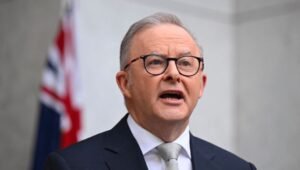One thing is for sure: nothing will be the same, ever again. This is what the immediate future looks like As humanity and the entire world grapples with the COVID-19 global pandemic, it is quite difficult to predict a future in these testing times. However, a number of foreign policy experts have weighed in to envision the status quo in the post-coronavirus world.
Post coronavirus world order Will Be like
While world leaders have taken a number of nationalist and protectionist measures, this has led to a strong reinforcement of nationalist values and ideas. The thought of conserving and preserving what is already in the hands of the country, while shutting out all outside influences and factors, will lead to a world that is less open, less free and less accommodating. With travel bans and new immigration policies, it seems as if the death of globalization or the “global village”, as we know it, is near. This means that permanent changes that have occurred to political and economic systems across the world will remain firmly in place.
Populist and conservative politics seems to have become the new norm. With such strong measures in place, governments all over the world will be much more reluctant to relax and ease the strong measures that they have taken to combat the coronavirus.
Power Shift from west to east
One of the biggest changes that have been forecasted has been that of the tremendous power shift from West to East. Countries such as Singapore, New Zealand and China, despite being the origin point and epicenter of the coronavirus, have performed exceptionally well in combating the virus. However, traditional powers such as the United States (US) and the United Kingdom (UK) have really struggled to develop a consistent and effective approach to the pandemic.
Female Leadership
Female leadership, in particular, has certainly stolen the limelight. While most countries are led by male heads of state, examples such as those of New Zealand led by Prime Minister Jacinda Ardern, who has also given birth while in office, Germany under Vice Chancellor Angela Merkel, Taiwan’s president Tsai Ing-wen, to name a few. All these powerful women have shown that politics and leadership is not just something to be left completely to the men. These leaders are not just inspiring girls and young women all over the world to pursue their dreams and proving to be excellent role models, but also showing that the future, particularly that of world politics, may definitely be female. Meanwhile, the men, and particularly, white men, such as US President Donald Trump and British Prime Minister Boris Johnson, have struggled in the face of the tough challenges posed by COVID-19.
World moving towards a China-centric globalization model
Other experts have pointed towards the strong possibility of the world moving towards a China-centric globalization model. This means that the US, despite having been the world leader in most aspects ever since the end of the Cold War and the split of the Soviet Union in 1991, will lose out on its position. These scholars believe that the Sino-US rivalry, which is increasingly becoming a matter of global importance, holds the key to the near future of world politics. This rivalry has not only allowed traditional alliances to be overshadowed by short-term economic interests, but has also allowed China to challenge the unipolar world order, by capitalizing on a fragmented and weakened Europe while tussling with regional rivals such as India. This struggle between two of the world’s largest economies, is given another interesting dimension by current political leadership across the world prioritizing short-term benefits over long-term visions and plans of progress and stability.
India is another major player to decide the immediate future of post-coronavirus world order. In order to pose a real challenge to fellow Asian powers such as China, the Indian government must develop a strong commitment towards effectively dealing with domestic issues, in order to ensure its status as a long-term key stakeholder in both regional and global political dynamics.
Europe, due to recent political developments, has begun to seriously lag behind as a key player. The Brexit issue, along with other internal rifts, particularly within the European Union, threaten to derail the region’s long-term ambitions vis-à-vis international politics. Unless a coherent and united effort is made to bring some uniformity and consistency to European politics, the post-coronavirus future remains bleak.
*This guest post has been contributed by Mustafa ur Rehman, LUMS.

Fahad is an entrepreneur and a marketing enthusiast who loves to write on trending topics. He loves travelling & playing tennis is what he does in his leisure time. He tweets @fahad164.
Email:- fahad164@gmail.com , fahad@themediaparadigm.com











